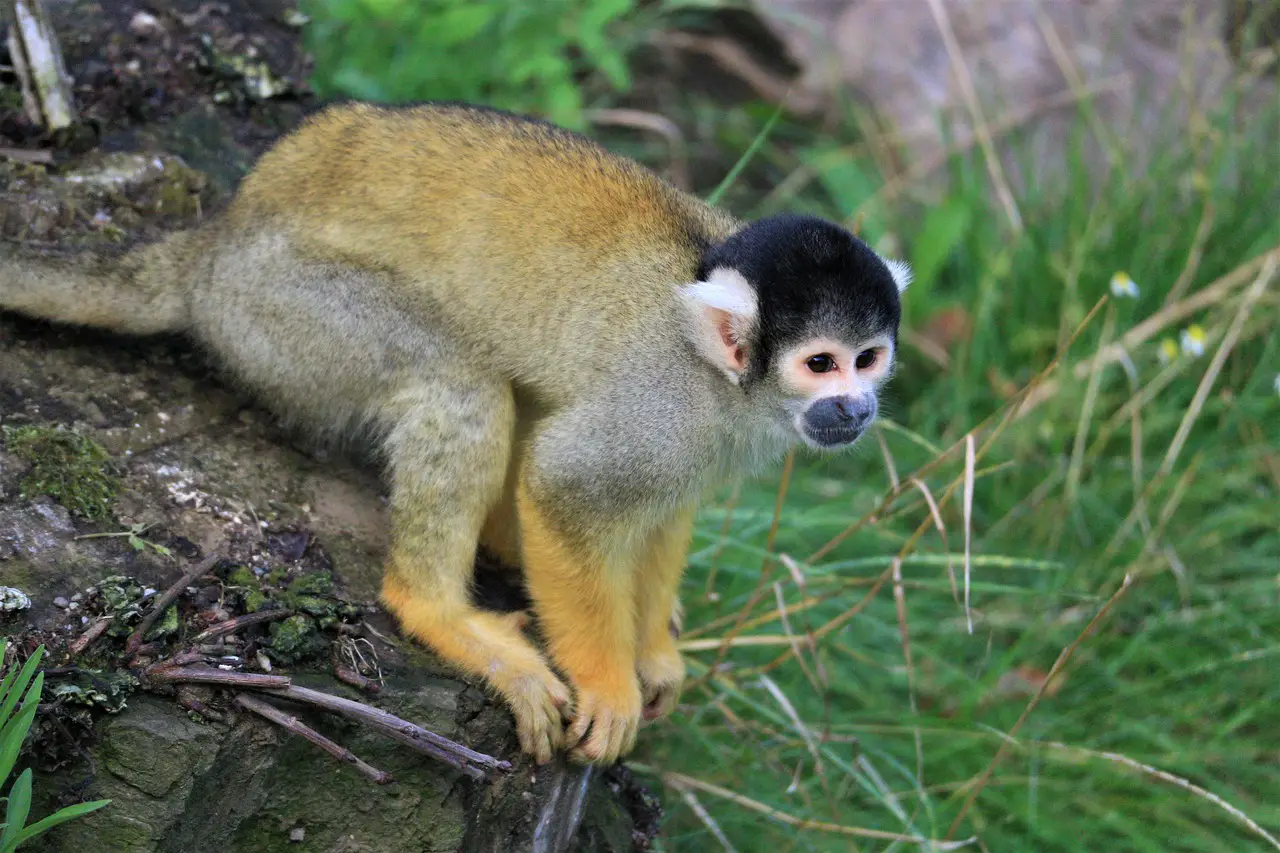Imagine having a playful and intelligent companion who swings from branch to branch and captures your heart with their mischievous antics. Pet monkeys have a unique allure, but owning one comes with a set of responsibilities and considerations. In this article, we will delve into the world of pet monkeys, discussing different types, legal and ethical considerations, care requirements, and the benefits and challenges of having these extraordinary creatures as companions.
You may also want to read about the finger monkey.
Owning a Pet Monkey
Owning a pet monkey can be an incredibly rewarding experience for those who are dedicated to providing the necessary care and attention. Let’s explore what it takes to be a responsible pet monkey owner.
Types of Pet Monkeys
There are several types of monkeys that are kept as pets. Let’s take a closer look at a few popular choices.
Capuchin Monkey
Capuchin monkeys are small, intelligent primates known for their dexterity and problem-solving abilities. They have expressive faces and are often seen wearing endearing smiles.

Marmoset Monkey
Marmoset monkeys are tiny creatures with unique features, including tufts of hair around their ears and a distinctive coloring. They are highly social and form strong bonds with their human caregivers.
Squirrel Monkey
Squirrel monkeys are known for their high energy levels and social nature. They have a playful demeanor and are often seen engaging in acrobatic displays.
Considerations Before Getting a Pet Monkey
Before welcoming a pet monkey into your life, it’s important to consider various factors to ensure the well-being of both the monkey and your household.
Legal and Ethical Considerations
The legality of owning a pet monkey varies depending on your location. It’s essential to research and comply with local laws and regulations to avoid any legal issues. Additionally, it’s crucial to assess the ethical implications of keeping a primate as a pet, considering the welfare of the individual animal and the conservation of the species.
Lifespan and Commitment
Pet monkeys have long lifespans, often reaching 20 years or more. This longevity requires a significant commitment of time, energy, and resources. It’s important to consider the long-term responsibility and ensure that you can provide for the monkey’s needs throughout its life.
Care and Socialization
Pet monkeys require specialized care and socialization to thrive. They need a stimulating environment, proper nutrition, veterinary care, and opportunities for mental and physical enrichment. Additionally, monkeys are highly social animals and need companionship, either from their human caregivers or other monkeys.
Benefits and Challenges of Having a Pet Monkey
Owning a pet monkey can be a unique and fulfilling experience, but it also comes with its share of challenges.
Pet monkeys can form deep emotional bonds with their owners and provide companionship unlike any other. Their intelligence and curious nature make them fascinating companions, capable of learning complex tasks and engaging in interactive play.
However, it’s essential to recognize the challenges associated with pet monkeys. They require a considerable amount of time, attention, and specialized care. Monkeys can be mischievous and may exhibit behaviors such as aggression or destructiveness if not properly trained and socialized. Additionally, the cost of caring for a pet monkey can be significant, including expenses for food, housing, veterinary care, and enrichment.

Monkey-Proofing Your Home
Creating a safe environment is crucial when bringing a pet monkey into your home. Monkeys are naturally curious and agile, so it’s important to monkey-proof your living space to prevent accidents and protect your belongings.
Training and Enrichment for Pet Monkeys
Training and providing enrichment activities are essential for the well-being of pet monkeys. Positive reinforcement techniques can be used to teach basic commands, encourage desirable behaviors, and provide mental stimulation. Enrichment activities such as puzzle toys, foraging opportunities, and social interactions can keep your monkey mentally and physically engaged.
Conclusion
Owning a pet monkey can be a fascinating and rewarding experience, but it requires careful consideration, commitment, and a deep understanding of their needs. From legal and ethical considerations to providing appropriate care, socialization, and enrichment, being a responsible pet monkey owner is essential. With the right knowledge, resources, and dedication, the bond between human and monkey can be a truly special and mutually beneficial relationship.
FAQs
1. Can anyone legally own a pet monkey?
The legality of owning a pet monkey varies depending on your location. It’s important to research and comply with local laws and regulations to ensure you are legally allowed to keep a pet monkey.
2. Do pet monkeys make good companions?
Pet monkeys can form strong bonds with their owners and provide companionship. However, it’s crucial to understand their unique needs and consider the challenges associated with their care and socialization.
3. What kind of environment do pet monkeys need?
Pet monkeys need an environment that provides ample space for climbing and exploration. They also require mental and physical stimulation through enrichment activities and social interaction.
4. How do I ensure the well-being of my pet monkey?
To ensure the well-being of your pet monkey, it’s important to provide proper nutrition, veterinary care, socialization, and mental enrichment. Regularly consult with primate experts and veterinarians experienced in primate care.
5. Are there alternatives to owning a pet monkey?
If owning a pet monkey is not feasible or suitable for you, there are alternatives to satisfy your love for primates. Consider volunteering at primate sanctuaries or supporting conservation efforts to protect monkeys in their natural habitats.
